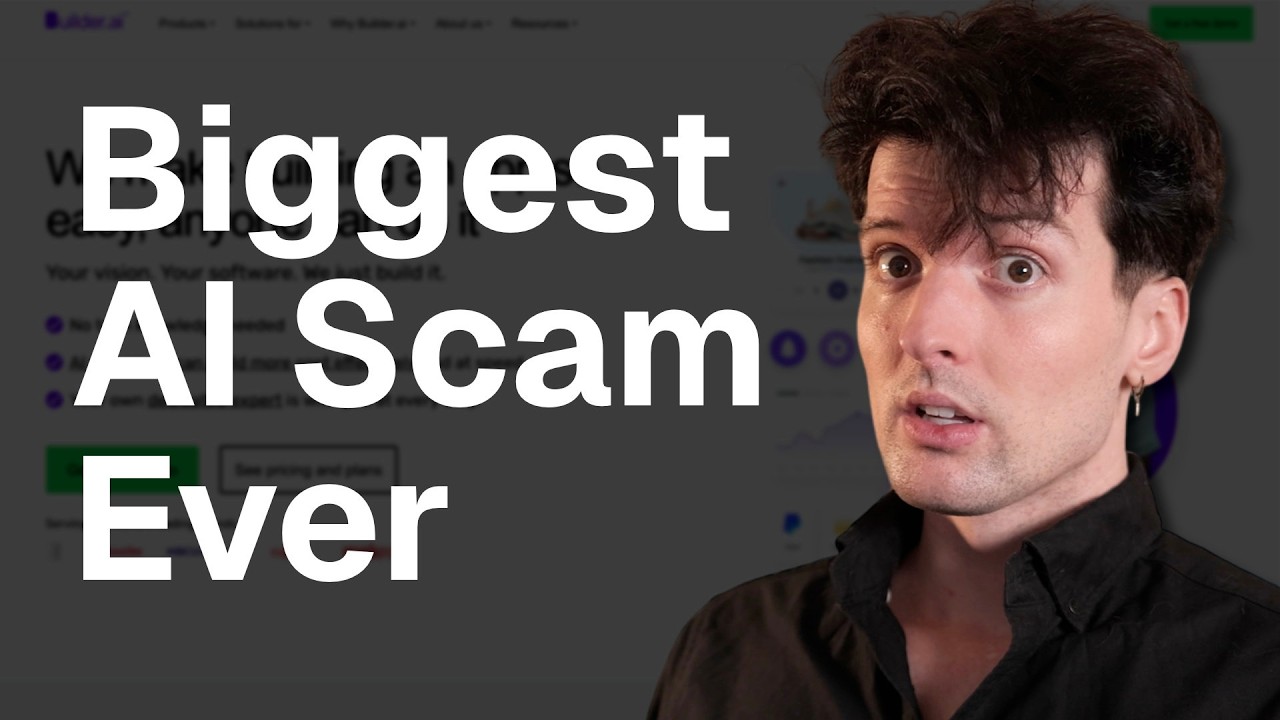The video exposes Builder.ai’s fraudulent practices, including inflating sales through fake transactions and falsely claiming AI-driven app development, leading to their valuation collapse. It highlights the broader issue of corporate fraud in startup culture, emphasizing that long-term success relies on transparency and genuine value rather than deception.
The video delves into the scandal surrounding Builder.ai, a company that claimed to revolutionize app development using AI but was ultimately exposed for fraudulent practices. Despite their lofty promises of making app building easy and AI-driven, it was revealed that most of the code was actually being developed by Indian programmers, not AI. The company falsely inflated its sales figures by engaging in “round-tripping” with an Indian firm called Versail, where payments were made back and forth to artificially boost revenue and impress investors. This deception was uncovered when creditors noticed discrepancies, leading to Builder.ai’s funds being seized and their valuation collapsing from $1.5 billion.
The speaker emphasizes how these types of economic and corporate frauds happen, especially in the context of venture-backed startups. They explain that early-stage companies are often valued based on growth potential rather than actual profits, incentivizing manipulative tactics like inflating revenue. Builder.ai’s case exemplifies this, as they falsely reported increased sales through fake transactions with Versail, making it appear as though they were rapidly growing when in reality, no real value was being created. The company’s attempt to appear successful involved spending heavily on marketing and hiring, but without generating genuine revenue, leading to their downfall.
A significant part of the discussion focuses on the broader investment landscape, contrasting early-stage investors like Y Combinator with later-stage investors like SoftBank. The speaker explains that early investors take huge risks by investing in companies with uncertain growth, expecting massive returns if the companies succeed. Conversely, late-stage investors like SoftBank bet on companies that are further along but require enormous sums of money to scale. The Builder.ai scandal is particularly egregious because it involved a company on the later stage of growth, where transparency and actual performance are expected to be more scrutinized.
The speaker also shares personal insights about the importance of transparency and honesty in business, criticizing companies that prioritize appearances over real success. They highlight their own practice of keeping their business dealings transparent, especially regarding sponsorships and revenue, contrasting this with Builder.ai’s fraudulent behavior. The speaker underscores that faking growth and inflating figures might bring short-term gains but ultimately damages credibility and long-term sustainability. They advocate for honesty as the true path to lasting success, even if it means admitting setbacks or failures.
In conclusion, the video criticizes Builder.ai’s attempt to appear as a successful AI-driven company while engaging in blatant financial fraud. The speaker laments how common such scams are in the industry, driven by the obsession with growth metrics rather than genuine value creation. They warn against the temptation to manipulate figures and emphasize the importance of integrity in business practices. Ultimately, the message is clear: dishonesty may offer temporary gains, but long-term success depends on transparency, genuine effort, and ethical conduct.
